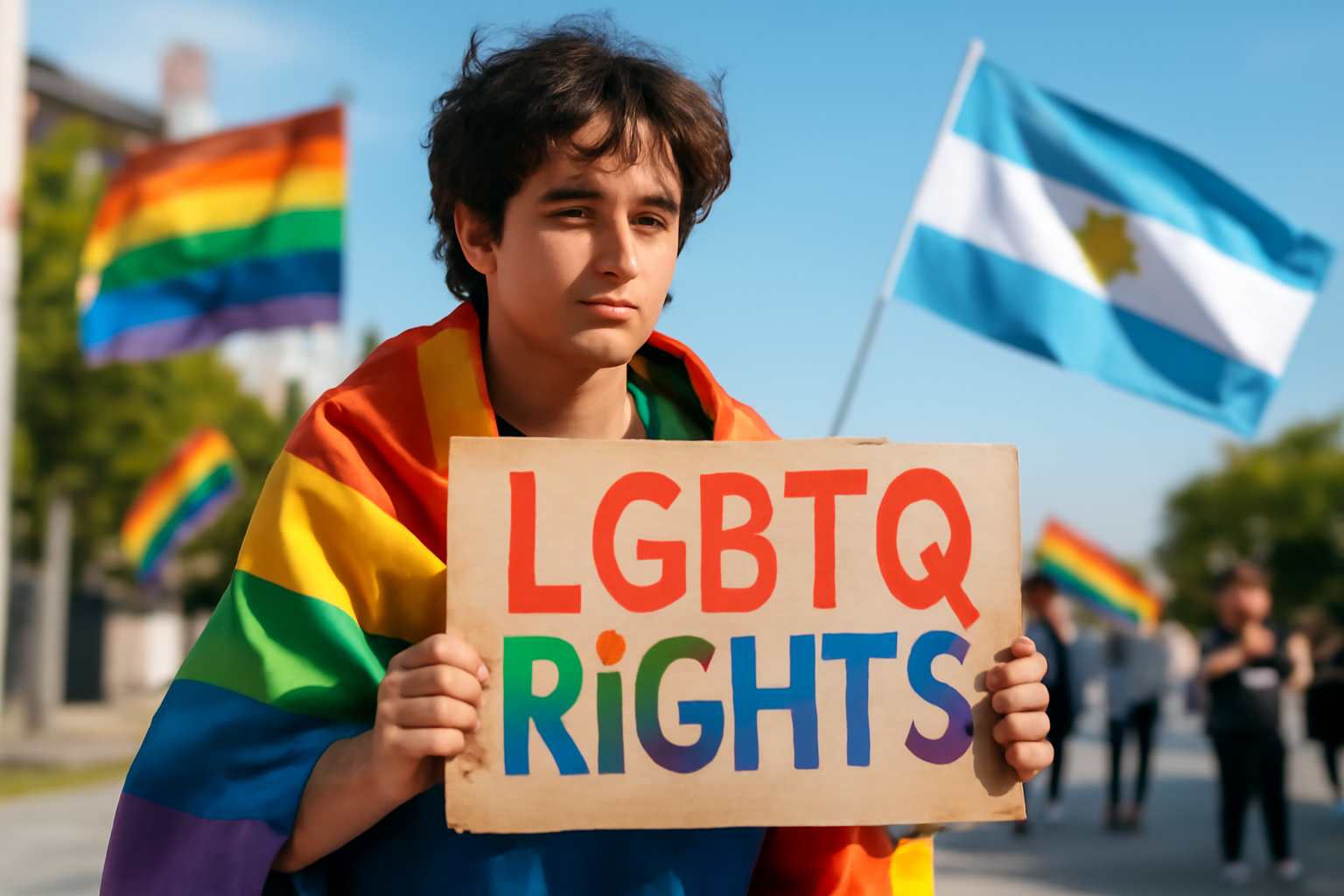
In the past year, Argentina has experienced significant shifts in its political landscape, particularly impacting the LGBTQ community. The election of a new government under President Javier Milei has introduced changes that have brought both concern and resistance among advocates for human rights and equality.
Initial Reforms and Their Implications
When Javier Milei assumed office, the atmosphere in Argentina's political realm changed drastically. His administration quickly initiated reforms that have affected long-standing human rights policies. These moves have generated apprehension among LGBTQ advocates, as they represent a departure from previous supportive measures.
One of the most notable actions taken by the administration was the closure of prominent institutions like the Ministry of Women, Gender and Diversity, along with the National Institute Against Discrimination, Xenophobia, and Racism (INADI). These entities were crucial in advocating for diversity and protecting the rights of marginalized groups, including the LGBTQ community. Their dismantling signals a shift away from governmental support for these causes.
Impact on Employment and Legal Protections
The withdrawal of these protections has left many LGBTQ individuals in vulnerable positions. Notably, new policies now allow employers to dismiss workers based on their sexual orientation or gender identity, with no legal recourse for those affected. This change disproportionately impacts transgender individuals, who often face discrimination in the workplace. The suspension of a trans-specific employment quota exacerbates these disparities, leaving many without job security.
Advocates like Congressman Esteban Paulón have voiced concerns over these developments, highlighting the increased difficulty in addressing discrimination without institutional support. Cases that once found resolution through INADI now risk being ignored or forgotten.
Social Climate and Rhetoric
In addition to policy changes, the administration's rhetoric has further intensified societal divisions. The government's stance is perceived as aligning with ultraconservative and religious factions, emboldening hateful speech and potentially paving the way for violence. Although Argentina has not yet seen widespread violence, the hostile discourse has created an atmosphere where prejudice can flourish unchecked.
Paulón notes that while Argentina is not currently experiencing systematic violence against LGBTQ individuals, the environment remains precarious. He emphasizes the power of words from influential figures, which can validate harmful actions.
Efforts to Counteract Regressive Measures
Despite these challenges, resistance to these policies is robust. Lawmakers and activists are actively working to counteract the negative impacts on the LGBTQ community. Proposals to ensure access to healthcare, inclusive education, and labor protections are currently being developed and put forth in legislative sessions.
On a broader scale, activists have strengthened ties with international organizations and advocates from neighboring countries, such as Brazil, Chile, and Mexico. These collaborations aim to raise awareness and garner support for preserving LGBTQ rights in Argentina.
A Hopeful Outlook Despite Difficulties
While the situation remains challenging, there is a sense of hope among advocates. The foundations of marriage equality and transgender rights are deeply embedded in the social fabric of Argentina. These achievements act as protective barriers against further regression. Paulón and others in the movement emphasize the importance of remaining organized and resilient in the face of adversity.
Ultimately, the current struggles serve as a potent reminder of the ongoing nature of the fight for equality. Social progress is not guaranteed, and continual effort is necessary to maintain and advance the rights of all individuals. As Argentina navigates this tumultuous period, the resolve of its advocates stands as a testament to the enduring spirit of the LGBTQ community.
In conclusion, the past year has seen significant challenges for LGBTQ rights in Argentina under new leadership. Yet, through persistent advocacy and international solidarity, there is hope for a future where diversity and equality are once again prioritized by the government.
Related Posts
Trump Inaugurated as 47th President Amid Concerns for LGBTQ+ Community
Donald Trump has been sworn in as President once again, marking his second term as America's 47th leader. This significant event in U.S. politics promises profound impacts, especially concerning LGBTQ+ rights. Taking office: promises and challenges Amidst a harsh winter storm, Trump took his oath indoors at U.S. Capitol on January 20. Alongside him, Vice-President JD Vance also stepped up, both [...]
Daniel Craig's "Queer" Overlooked by BAFTA: A Surprising Omission
Daniel Craig's film, Queer, snubbed by BAFTAs despite rave reviews In a surprising twist, Daniel Craig's newest film, *Queer*, failed completely on BAFTA's nomination list this year. It's a head-scratcher, considering how critics have sung its praises and Craig delivered such a standout performance. Yet, not a single nod from BAFTA. Go figure. fans and critics baffled by BAFTA snub The exclusio [...]
Generations of LGBTQ+ Athletes: From Past Challenges to Modern Triumphs
In a captivating display that brought together voices across generations, two gay athletes from different times came together on a TV show, sharing their journeys and thoughts on LGBTQ+ representation in sports. This insightful program shed light on how inclusivity and acceptance in athletics have evolved over time. Connecting past and present: The stories behind Andrew Purchas and Davis Atkin L [...]